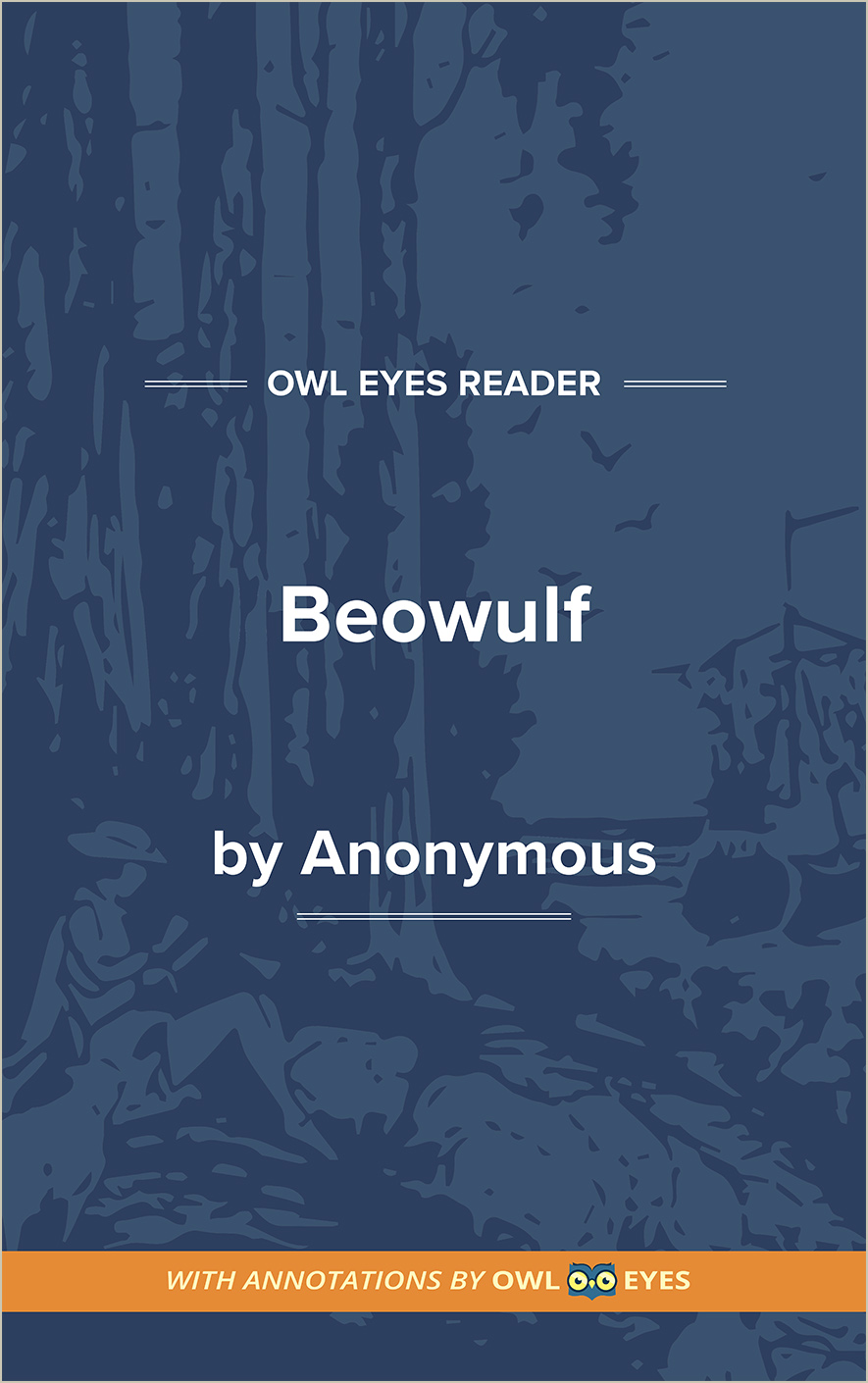Analysis Pages
Kennings in Beowulf
Kennings Examples in Beowulf:
I
🔒IV
🔒"o'er the ocean..." See in text (IV)
V
🔒"word-treasure..." See in text (V)
VI
🔒"The giver of rings..." See in text (VI)
VII
🔒"Thou needest not trouble A head-watch to give me;..." See in text (VII)
IX
🔒"Unferth spoke up, Ecglaf his son, Who sat at the feet of the lord of the Scyldings, Opened the jousting..." See in text (IX)
X
🔒"giver of treasure..." See in text (X)
XI
🔒"And bade him bide with his battle-equipments...." See in text (XI)
XII
🔒"bone-prison..." See in text (XII)
"Open the entrance..." See in text (XII)
XIII
🔒"war-bills..." See in text (XIII)
XIV
🔒"Afterward Heremod's hero-strength failed him,..." See in text (XIV)
XXIX
🔒"Peace-tie of peoples..." See in text (XXIX)
XXX
🔒"Joy-telling wood..." See in text (XXX)
XXXIII
🔒"good was that folk-king...." See in text (XXXIII)

